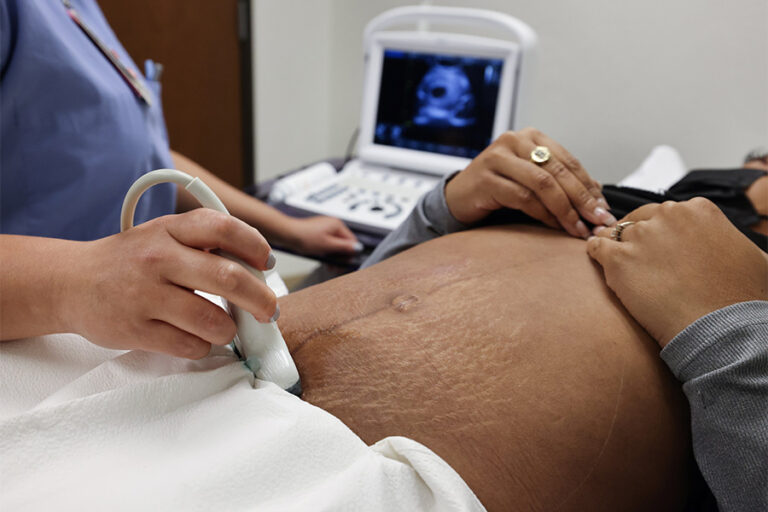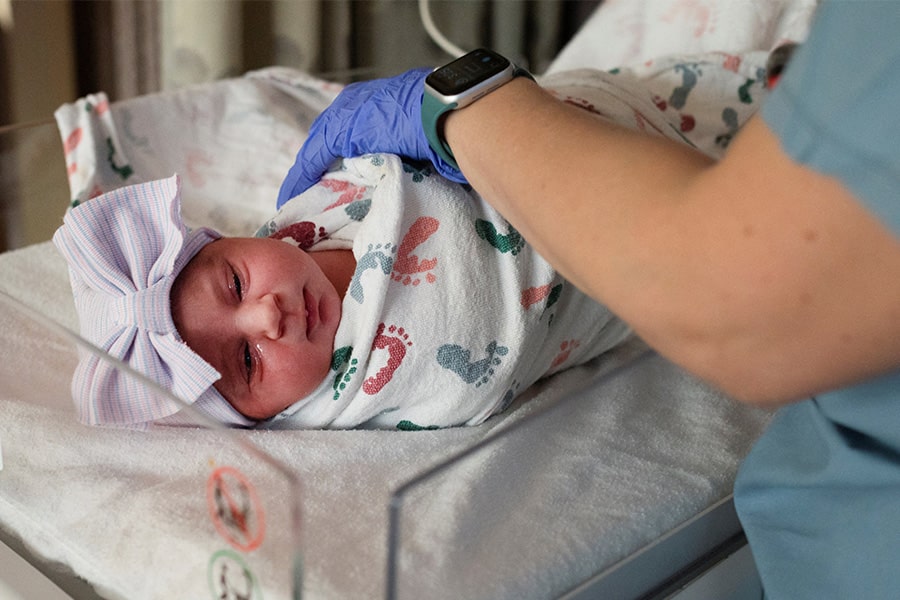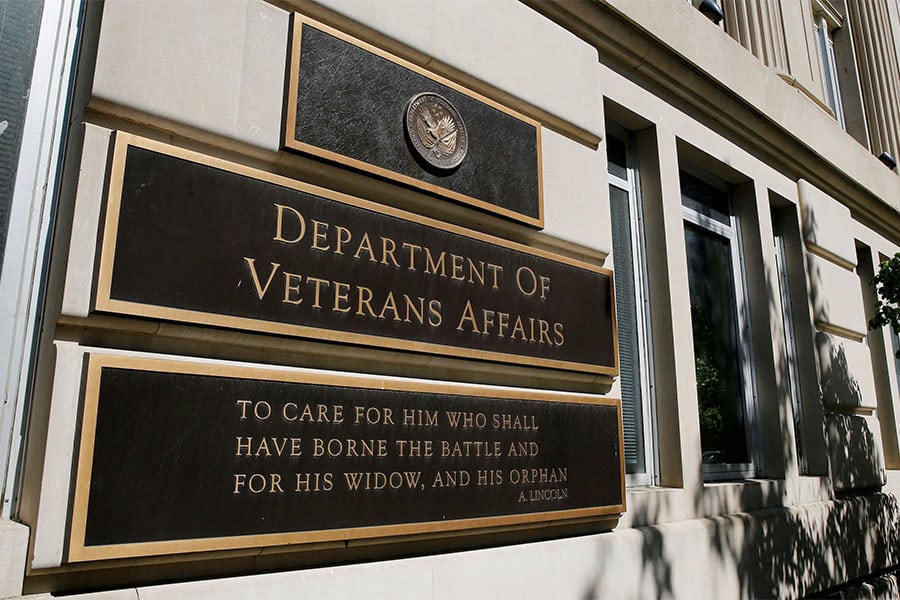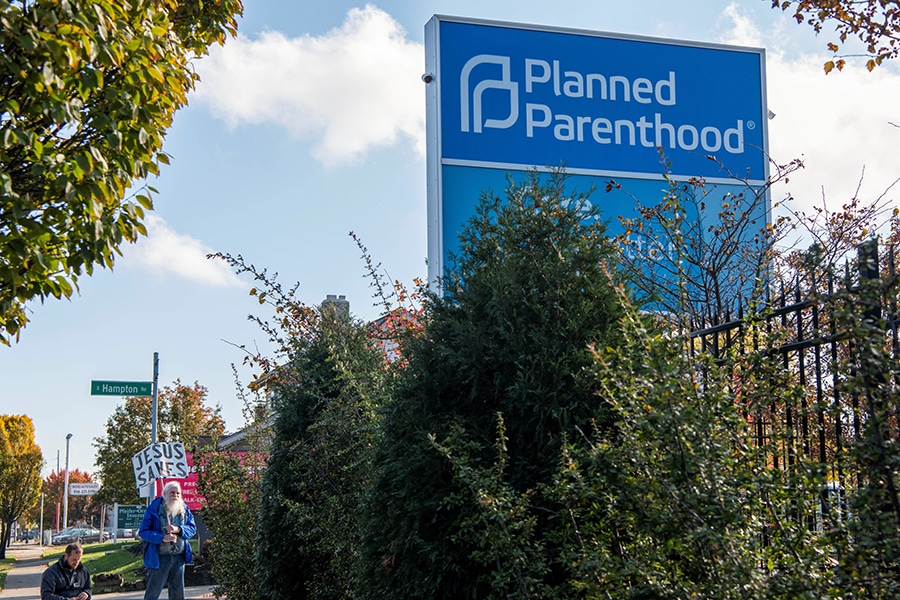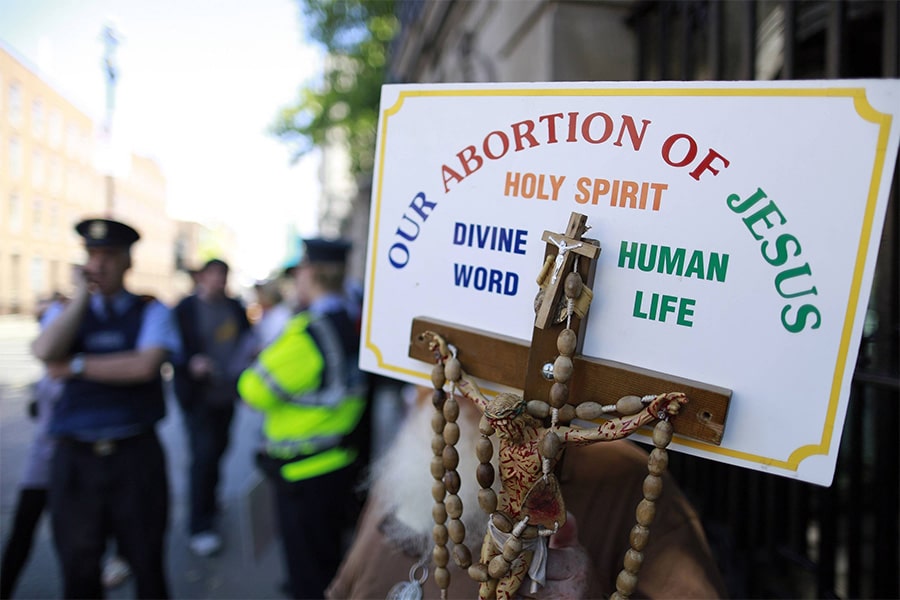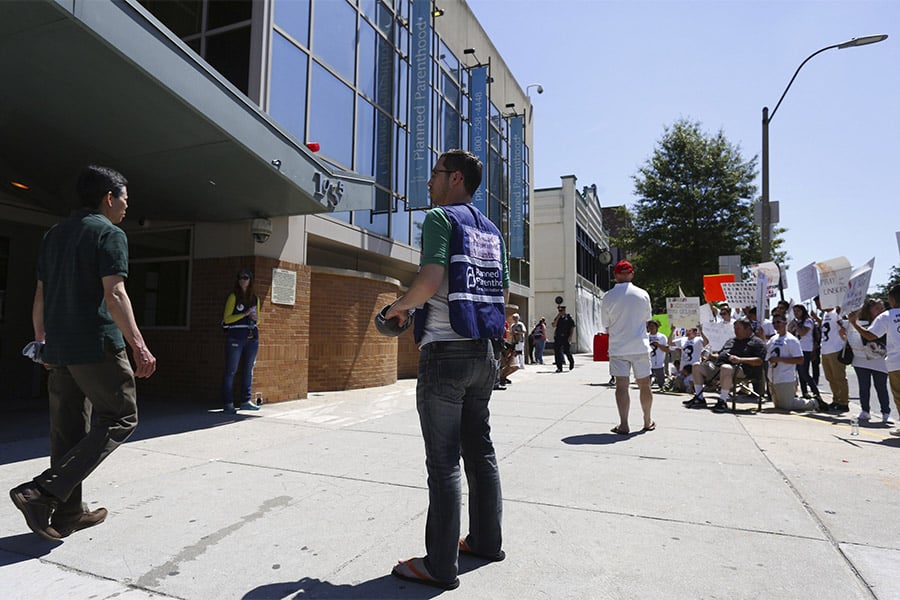If there can be said to be a vanishing population in the United States, one demographic immediately stands out: people living with Down syndrome. But how can they be truly disappearing when there are an estimated 400,000 such Americans, whose lifespans are at the same time — through medical advancements — increasing to 50-plus years old?
The answer — as a Catholic University of America Institute for Human Ecology panel informed its audience March 19 — lies in the same arena of medical advancements: selective abortion based on a test result.
An estimated 70 to 90 percent of children with a definitive in utero diagnosis of Down syndrome are aborted. The Journal of the American Medical Association notes that “Down syndrome is the most common chromosomal disorder, affecting approximately 1 in every 700 births.”
“I am filled with great sadness when I realize I might be the last generation of people with Down syndrome,” said disability and pro-life advocate Bridget Brown, reading from a letter she wrote to the people of Iceland after learning the nation had all but “eliminated” the condition by aborting virtually 100% of children who test positive for it in the womb.
“The world may never again benefit from our gifts,” reflected Brown, a young woman with Down syndrome who serves on the National Catholic Partnership on Disability’s Committee on Intellectual and Developmental Disabilities.
Mary O’Callaghan, a developmental psychologist based at the University of Notre Dame — who also chairs the NCPD’s Ethics and Public Policy Committee and whose youngest son has a dual diagnosis of Down syndrome and autism — shared Brown’s urgent tone.
“The history of prenatal testing is very much tied up with the history of Down syndrome in our country within the last 60 years or so,” O’Callaghan said, noting the increased expansion of the practice — especially since the American College of Obstetricians and Gynecologists began officially recommending more than 40 years ago that all women over the age of 35 receive prenatal screening.
Confusion among parents, O’Callaghan noted, is not uncommon when it comes to the accuracy of even contemporary tests, as well as their screening versus diagnostic ability.
“Taken as a whole, the threat that prenatal testing and diagnosis poses to children with Down syndrome, I think is much more urgent than it was in 1978,” O’Callaghan said, referring to the year the U.S. Catholic Conference (a predecessor to the U.S. Conference of Catholic Bishops) released its pastoral statement on persons with disabilities. “Testing is more widespread; it’s much earlier in pregnancy,” she said.
“So much has changed since 1978,” said panel moderator J.D. Flynn, “in terms of the way that we talk about, and think about, and engage with people who have disabilities; in terms of the way that people with disabilities advocate for themselves; and in terms of the way that we think about inclusion, especially in the structures of our church.”
Flynn, a canon lawyer and co-founder of The Pillar, a journalism project focused on the Catholic Church, is the father of two children with Down syndrome. He noted the USCCB is in the process of re-drafting its Pastoral Statement on Persons with Disabilities.
Nonetheless, progress for people with Down syndrome can be characterized as only incremental.
“As those with Down syndrome are increasingly showing us their ability to flourish in the midst of families and wider society, the targeting of them for selective abortion in medicine has become even more aggressive,” O’Callaghan emphasized. “So despite all the gains we’ve made in the area of disability rights, I’d say we’re in a much worse place with respect to abortion and Down syndrome — at least in terms of medical policy and practice.”
Tracy Winsor, co-founder of Be Not Afraid, a case management support service for parents carrying to term following a prenatal diagnosis, agreed.
“I think in a general sense, oftentimes, the conversation around any prenatal diagnosis — which obviously would include Down syndrome — is based on the idea that you want to make it as easy as possible for the parents to terminate the pregnancy, if that’s what they’re inclined to do,” Winsor said. “That seems to be the effort that’s made. And so very often — across the board, without regard to diagnosis — we see kind of (the) worst-case scenario presented to parents as they look forward. That’s a challenge.”
False positives — associated with a mother’s age and increasing with the rarity of a condition — can also have a devastating impact upon parental decision-making, Winsor said.
“For a woman who’s 28 years old — if she receives a positive screening result of Down syndrome — there’s a 44 percent chance that it’s a false positive. That’s kind of high,” Winsor explained. “And what we find in practice, is that if that’s a woman who says, ‘Wait a minute — I just thought I was going to find out if this was a boy or girl; I didn’t expect this answer; I’m not going to pursue additional testing,’ then, oftentimes, the medical community will start responding as if that test is diagnostic.”
Panelists agreed that advocacy and accuracy are essential: parents who are expecting a child and receive a Down syndrome diagnosis must be connected with someone in the Down syndrome community, since hearing their positive experiences can be a strong motivator to choose life.
Asked what she would say to a mother who just learned her baby has Down syndrome, Brown’s reply was both succinct and hopeful.
“Make plans based on dreams and not on fears,” she said. “Believe in yourself and your child.”
Read More Respect Life
Copyright © 2024 OSV News

